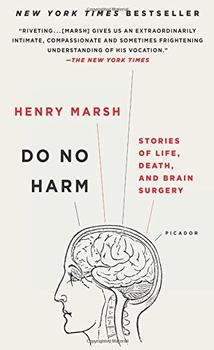Summary | Excerpt | Reviews | Beyond the Book | Readalikes | Genres & Themes | Author Bio

Critics' Opinion:
Readers' Opinion:
First Published:
May 2015, 304 pages
Paperback:
Jun 2016, 288 pages
 Book Reviewed by:
Book Reviewed by:
Kim Kovacs
Buy This Book
18
CARCINOMA
n. a cancer, esp. one arising in epithelial tissue.
I went to see my mother in hospital one Saturday. The cancer ward to which she had been admitted was on the tenth floor and her bed was beside a huge panoramic window. The view was of the Houses of Parliament and Westminster Bridge across the river, seen from above yet very close. The spring weather was exceptionally clear. The River Thames below us reflected the sunlight like polished steel and hurt my eyes. The city beyond was almost oppressive in its clarity – an unrelenting view of buildings, inhuman in scale and size – an inappropriate view, I thought, for somebody who was dying.
My mother said that the staff were very friendly but hopelessly overworked and disorganized compared to when she had been a patient in the same hospital many years earlier, gesturing to her bed which had been left unmade for two days as she said this. She hated complaining but admitted she had been kept starved for two consecutive days while waiting for an ultrasound scan – a scan which I knew was entirely unnecessary since she was already becoming jaundiced and obviously had metastases in her liver from the carcinoma of the breast for which she had been treated twenty years earlier. There was some light relief, she said, in using a commode while looking down on the nation's rulers across the river. She had grown up in Nazi Germany (from which she had escaped in 1939) and although a perfectly lawabiding citizen she was always sceptical of authority.
She was wasting away, as she herself commented. The bones of her face were becoming increasingly prominent and as she was stripped down to her underlying skeleton, I could recognize myself in her all the more clearly – people have always said that of her four children I am the closest to her in appearance. I could only hope that she might have a few good months left. We had an inconclusive discussion as to what she should do with what time she still had. My mother was one of the bravest and most philosophical people I had ever known but neither of us could bring ourselves to refer to death by name.
I was on call for the weekend and was telephoned endlessly by a new and inexperienced registrar about many difficult problems. These were not clinically difficult problems but problems caused by the chronic lack of beds.
On the following Monday there were various complaints from patients about my trying to discharge them from hospital too quickly. One of the complaining patients was a garrulous old man who was reluctant to go home with an indwelling urinary catheter after a simple spinal operation. I'd told him that he would be doing another patient a favour if he went home that day since we had no beds available for the patients who were due to be admitted for surgery next day. He was still on the ward three days later and the ward sister criticized me for having spoken to him in the way that I had (although I thought that I had been scrupulously polite). I had had to cancel an operation on a woman with severe trigeminal neuralgia because he wouldn't leave. The ward sister, nevertheless, told me that I had to apologize to him for having tried to get him to leave the hospital before he wished. So I went to say sorry to him (through silently gritted teeth). He accepted this happily.
'Yes, I understand, doctor,' he said. 'I used to work in the kitchenfitting trade and sometimes couldn't complete a job on time. I also disliked disappointing people.'
I muttered something about brain surgery and building kitchen cupboards not being entirely equivalent and left his room – a balcony room, overlooking the hospital gardens and trees, with a distant view towards Epsom on the horizon. I was still working in the old hospital at the time – it was to be closed three years later. Perhaps if he had been in a more typical NHS bay, and not in a room on his own with a view of the hospital gardens and the many daffodils I had planted years before, he might have wanted to leave earlier.
Excerpted from Do No Harm by Henry Marsh. Copyright © 2015 by Henry Marsh. Excerpted by permission of Thomas Dunne Books. All rights reserved. No part of this excerpt may be reproduced or reprinted without permission in writing from the publisher.





The House on Biscayne Bay
by Chanel Cleeton
As death stalks a gothic mansion in Miami, the lives of two women intertwine as the past and present collide.

The Flower Sisters
by Michelle Collins Anderson
From the new Fannie Flagg of the Ozarks, a richly-woven story of family, forgiveness, and reinvention.

The Funeral Cryer by Wenyan Lu
Debut novelist Wenyan Lu brings us this witty yet profound story about one woman's midlife reawakening in contemporary rural China.
Your guide toexceptional books
BookBrowse seeks out and recommends the best in contemporary fiction and nonfiction—books that not only engage and entertain but also deepen our understanding of ourselves and the world around us.